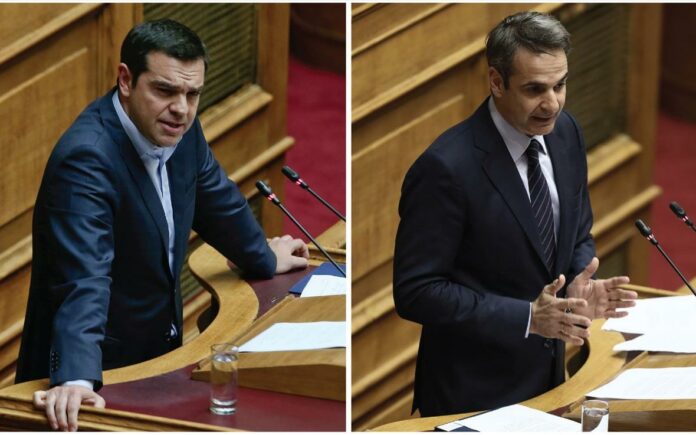The issue of war reparation demands from Germany was again played out in Greek Parliament on Wednesday, re-emerging a month before European Parliament elections and months before a scheduled general election. The reason for Wednesday’s session was, ostensibly, debate over an inter-party committee’s report on the matter, which was concluded in 2016.
Taking the podium first, Greek Prime Minister Alexis Tsipras said his hard left government aims to immediately send a note verbale to Berlin reiterating “the demands that arise from the Nazi invasion and occupation, as well as the war crimes by Nazi Germany.”
The Wehrmacht invaded Greece in April 1941, in part, to bail out a failed and routed Italian incursion by Italian forces that attacked Greece through Albania in October 1940. Most of the German occupation forces were evacuated in October 1944 after inflicting thousands of deaths and widespread destruction on the country’s infrastructure, amid a bitter partisan struggle against the occupier. A German garrison remained on Crete and several other eastern Aegean islands until May 1945.
The issue of war reparations, as well as repayment of a so-called “occupation loan”, was high on ruling SYRIZA party’s agenda when it assumed power in January 2015, only to fade from the forefront after a third bailout signed in August 2015.
According to Tsipras, Athens wants reparations for damages inflicted by German occupation forces; compensation for victims and the families of victims of war crimes; repayment of a forced “loan” taken from the Bank of Greece, and, just as prominently, a return of stolen archaeological artifacts and relics.
On his part, main opposition New Democracy (ND) leader Kyriakos Mitsotakis didn’t mince his words when charging that ruling SYRIZA used the issue of German war reparations as a “communications tool” when it was in the opposition, and then doing absolutely nothing when it came to power.
At the same time, he said his center-right party’s MPs will vote in favor of joint text prepared by Parliament’s presidium.
In terms of the substance of the matter, Mitsotakis said a legal challenge for reimbursement of the occupation loan is an open issue, and also politically feasible.
“It must be a priority for us,” he said, while warning that demands for war reparations, on the other hand, are a difficult and legally complex issue.
“However, Greeks that fell victims (to the Nazi occupation) are justified and must demand compensation,” he added.














